ORIGIN SNAPSHOT:
Brazil, Coffee Powerhouse
Havanaias, Pelé, Ronaldo, the Rio Carnival, the statue of Christ the Redeemer,Caipirinha … These are just a few of the typical Brazilian images, concepts and heroes that everyone knows. What interest us -professionally- the most, is their coffee and the people who grow, trade, roast, brew and consume it…
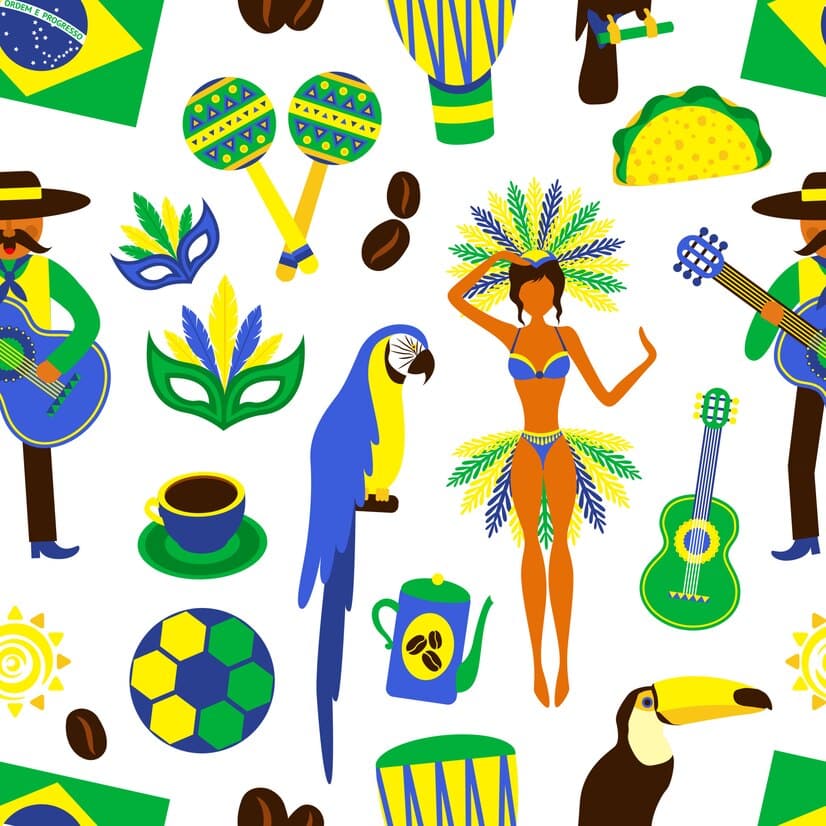
BRAZIL | A MODERN POWERHOUSE
Brazil is the world’s largest producer and exporter of coffee, sugar and orange juice, as well as the largest exporter of beef, soybeans and poultry. One in four grains consumed in the world is produced in Brazil. More than 1 of every 3 cups of coffee drunk worldwide are of Brazilian origin…
There’s not a single country in the world that grows coffee -or drinks it- like Brazil. It is the world’s #1 producer of coffee for over 150 years, and #2 consumer of coffee, with the United States leading. This coffee powerhouse is huge and has an incredibly diverse coffee industry with everything from basic coffee to world-stunning specialty coffee.
Brazilian coffee production accounts for a significant portion of the world’s coffee supply, and any changes in production could significantly affect market trends and coffee prices worldwide.

EFICO BRAZIL | A PARTNERSHIP WITH A PURPOSE
EFICO has had a strong and long term presence in Brazil, growing quickly to become one of the largest players in the traditional coffee space. EFICO has an commercial relationship with EFICO Brazil for almost 4 decades, since 2011, EFICO and EFICO Brazil are exclusive partners.
João Marcos, Director of EFICO Brazil, says there are many reasons for this success. The most important thing and what matters most is that we have a passionate coffee team. Their eye for detail, their trading prowess, and their insights into the dynamics of supply and demand are unmatched in the region.
With a strong team in place and a growing track record for successful execution and an efficient coffee infrastructure already in place, João Marcos began to explore Brazil’s emerging specialty coffee sector as well. He introduced the first Brazilian specialty coffees in 2017, and these efforts were very successful.
At EFICO, we feel very lucky to have a representative office in Brazil. With almost 40 years of experience in the coffee industry in Brazil, João Marcos has a deep understanding of the coffee market.
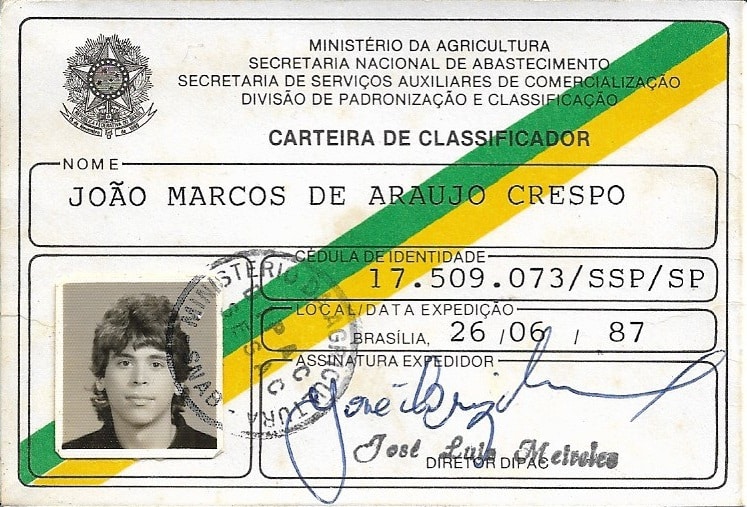
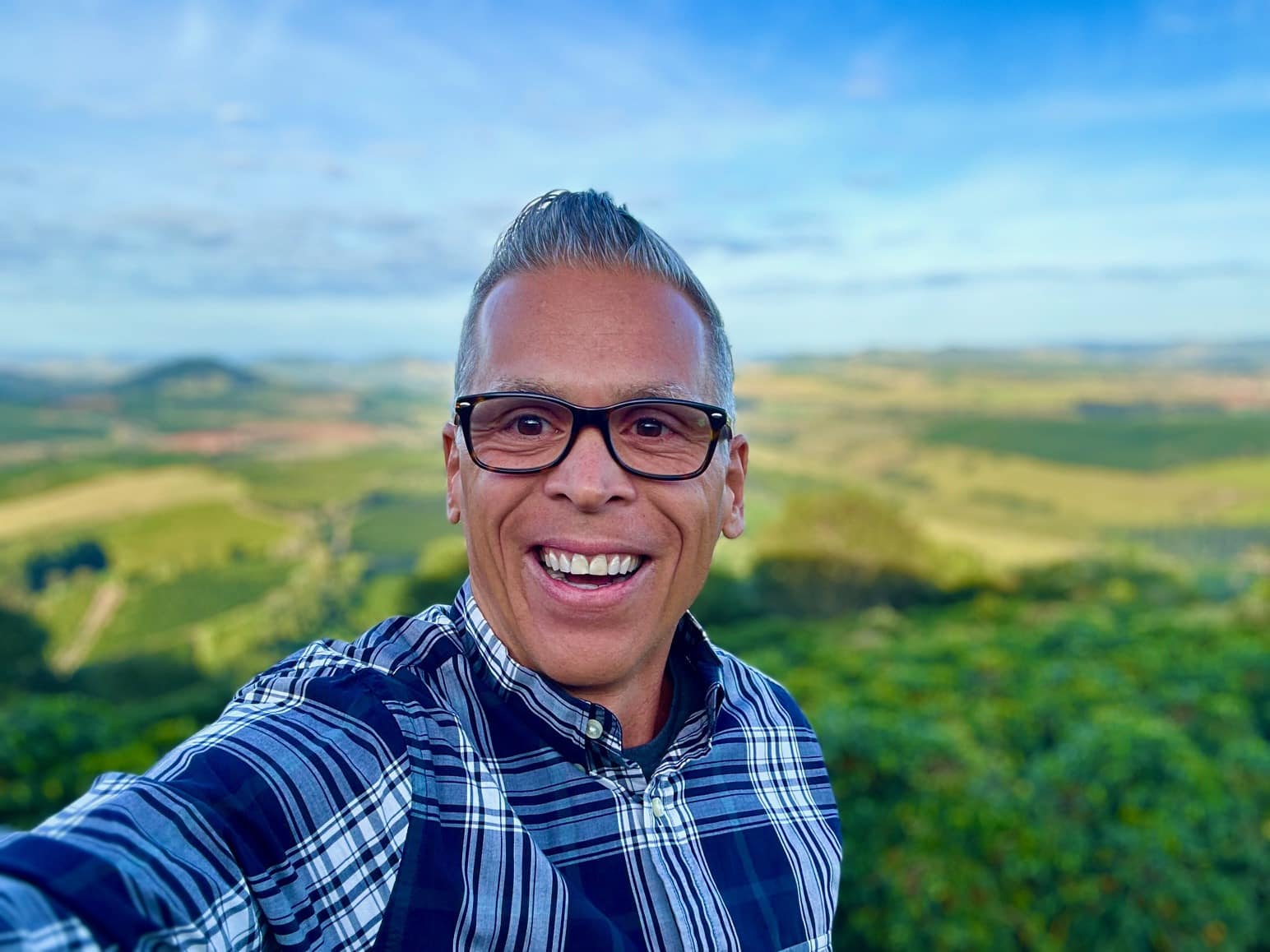
AN UPDATE FROM THE FIELD | Q&A with João Marcos Crespo
João Marcos, Can you give us your insights on the current social, political and economical situation in Brazil?
Brazil had a complicated transition from one government to the other, which generated a lot of friction from supporters and sympathizers on each side. Today, I think the whole political and economic situation is much more peaceful. Although, we know that peace in Latin American countries isn’t always lasting. But we can hope.
How often are you and/or your team ‘in the field’? How often do you visit a plantation?
We try to visit every region at least once a year, but it also depends on the number of suppliers we have in a particular area or how important the region is. I was in the South of Minas three times this year. I drive more than 1000km on each of these trips and always visit the headquarters of these companies, their warehouses and farms.
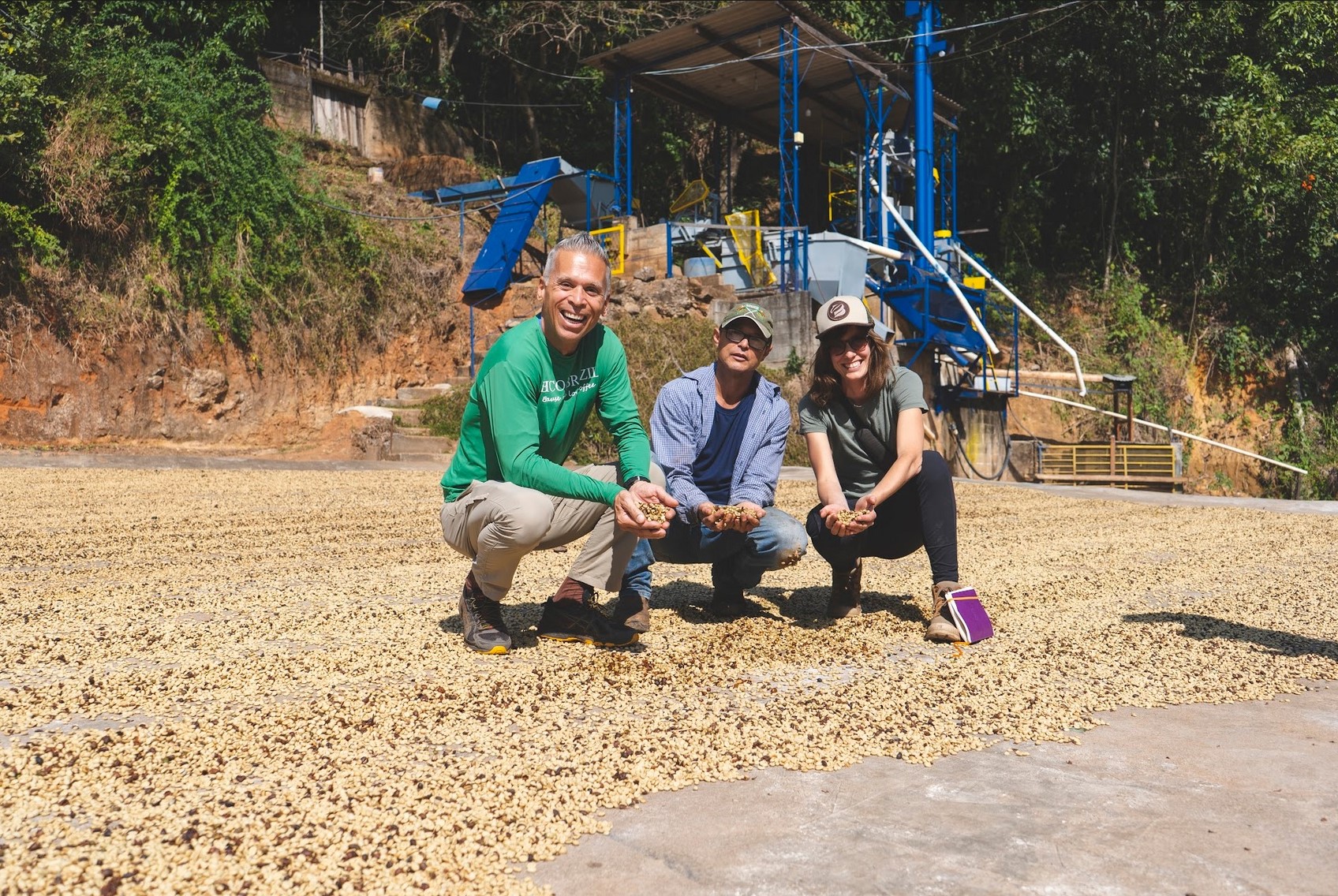
What was your biggest coffee buying challenge this year?
We began 2023 after some very difficult years in which we saw Covid19, war, drought and frost. After many years in coffee, we have learned not to let our guard down. 2023 has been a good year so far. I know we have to respect nature and its seasons. Let’s keep our fingers crossed for a nice rainy season in the last quarter of the year, if it’s not asking too much.
What can we expect from next crop?
The prospects are good! The trees are healthy, producers are investing in their farms. Every year we see new improvements in their processes and infrastructure. We hope to have a good balance between quantity and quality.
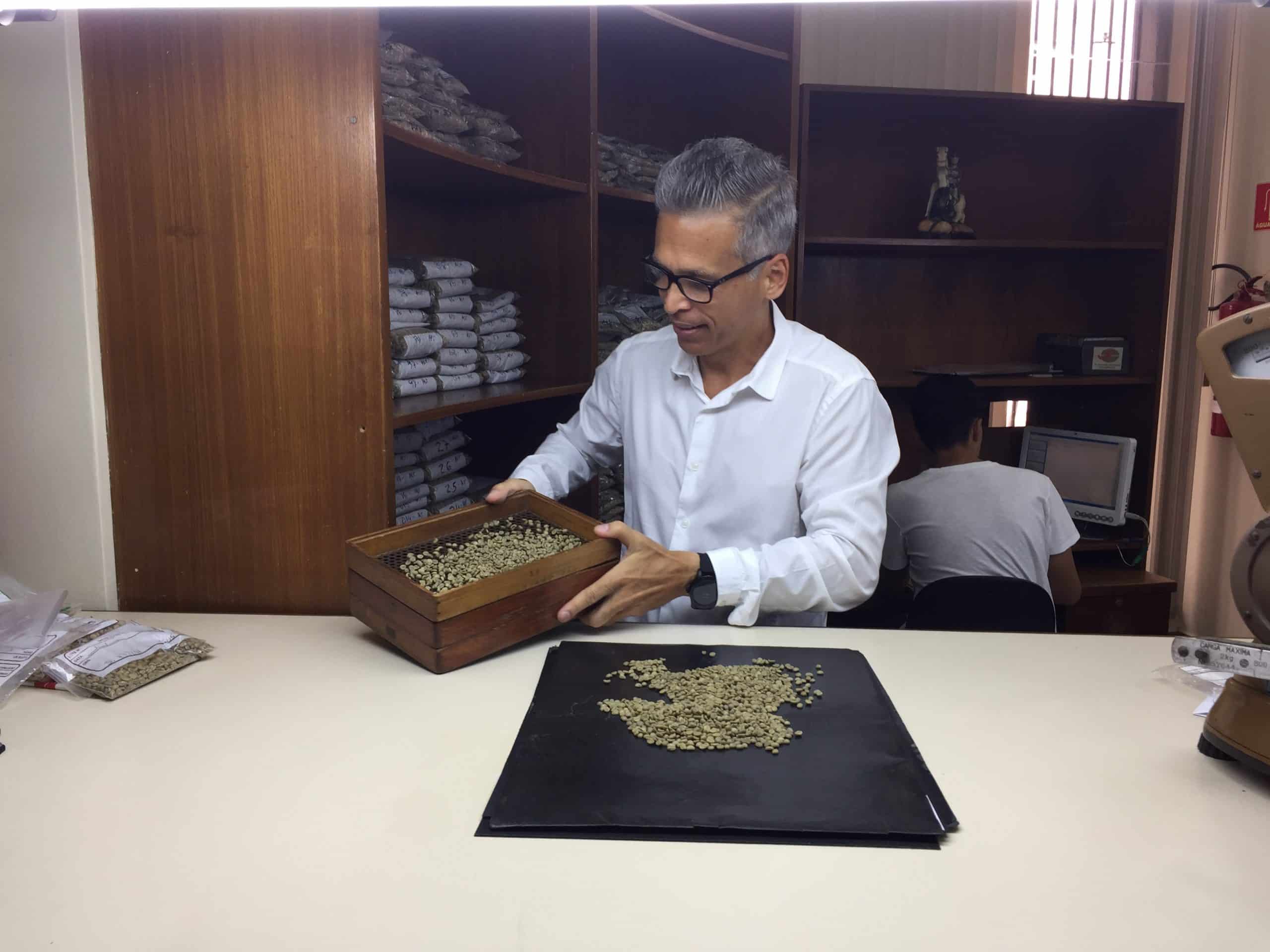
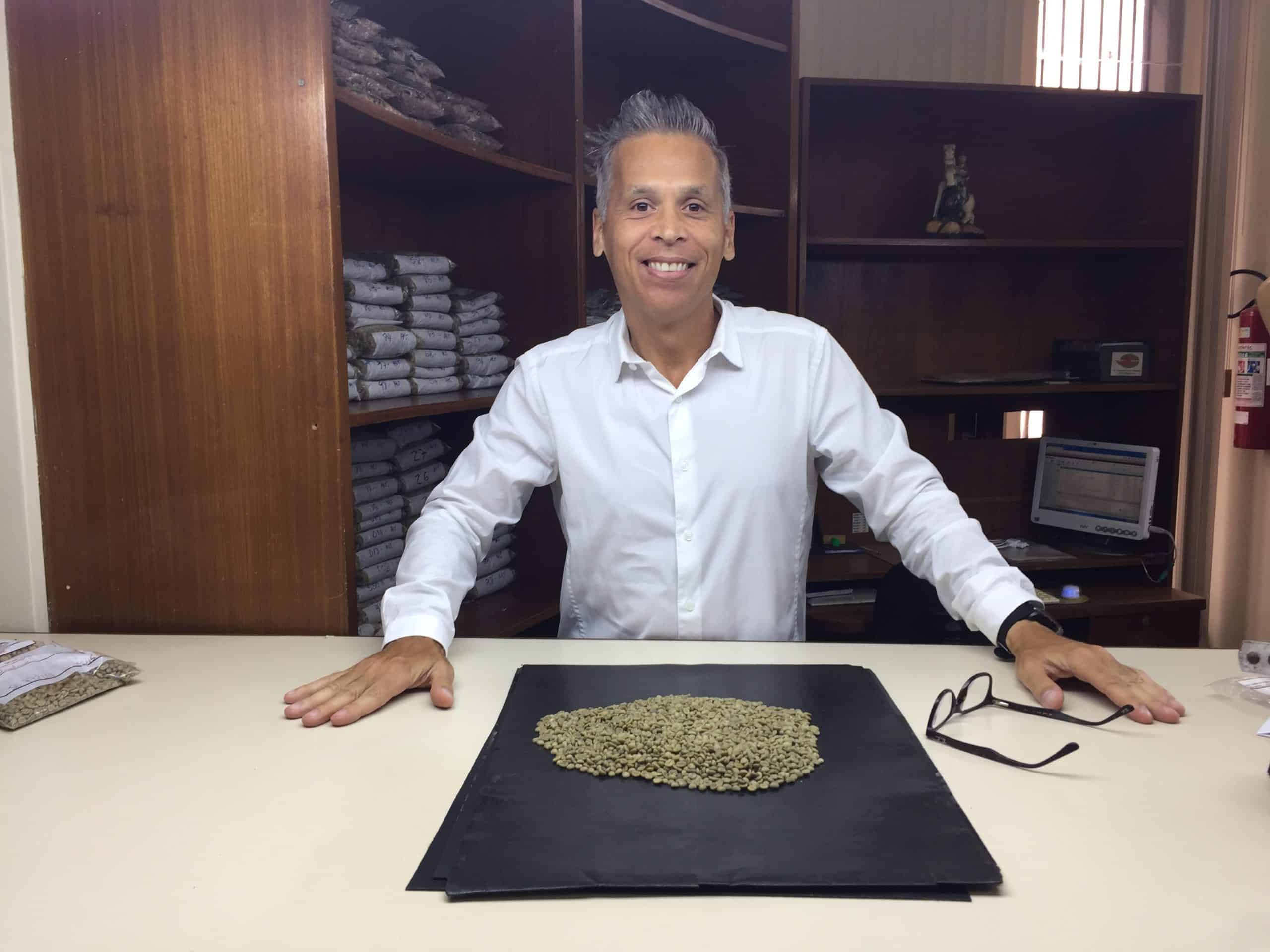
What do you hope will change in the coffee world in 2024 and onwards?
More respect for and understanding of nature and the world we live in. Today, the majority of the coffees we source and buy have some sort of certification. Our clients and our suppliers understand how important sustainability is, in agricultural terms as well as economical.
Which part of the work gives you the most energy?
Long term relationships with our partners. It is really satisfying meeting them all around the globe, in the coffee fields of Brazil, or hosting them in Belgium HQ, or at a coffee event, last World of Coffee in Athens was really exciting.
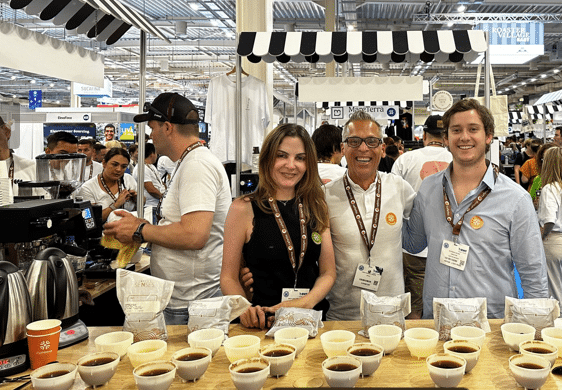
What achievement are you most proud of?
I have a few: I’m proud to have a long career in coffee, with friends that have become like brothers and sisters, and being part of a team in which there is a lot of harmony and friendship.
What tips wouldyou like to pass on to the new generation?
The essentials:
Be humble;
Be respectful;
Be open to learning new things; and
Be positive.

